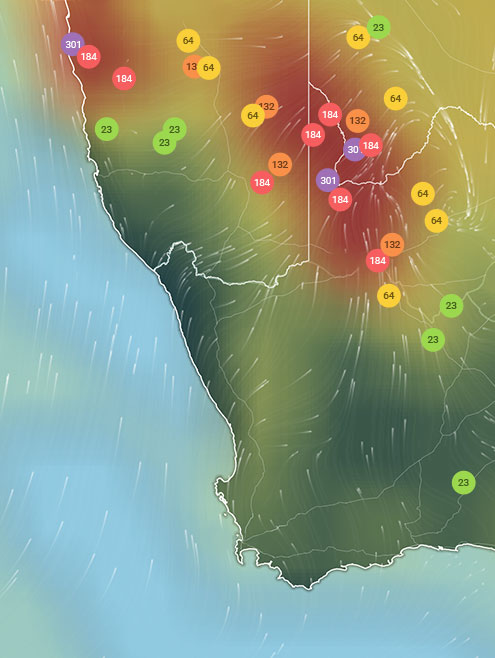Get a monitor and contributor to air quality data in your city.
267.6K people follow this city






AIR QUALITY DATA CONTRIBUTORS
Find out more about contributors and data sources| Index | Low | ||
| Tree pollen | Low | ||
| Grass pollen | None | ||
| Weed pollen | None |
| Weather | Mist |
| Temperature | 55.4°F |
| Humidity | 90% |
| Wind | 5.7 mp/h |
| Pressure | 29.8 Hg |
| # | city | US AQI |
|---|---|---|
| 1 | Aberdeen, Scotland | 130 |
| 2 | Cambridge, England | 86 |
| 3 | Nottingham, England | 83 |
| 4 | Motherwell, Scotland | 78 |
| 5 | Wetherby, England | 78 |
| 6 | Iver, England | 76 |
| 7 | Leeds, England | 74 |
| 8 | Southall, England | 74 |
| 9 | Hayes, England | 73 |
| 10 | London, England | 71 |
(local time)
SEE WORLD AQI RANKING
| # | station | US AQI |
|---|---|---|
| 1 | Hough Lane | 77 |
| 2 | SL050 - Bardsey | 77 |
| 3 | White Laithe Approach | 77 |
| 4 | Fir Tree Approach | 76 |
| 5 | Stocks Hill | 76 |
| 6 | Buck Stone Crescent | 75 |
| 7 | SL019 Cornwall Crescent Rothwell | 75 |
| 8 | SL035 Armouries Drive | 74 |
| 9 | SL020 Rothwell Community Hub | 73 |
| 10 | Temple Newsam Home Farm | 73 |
(local time)
SEE WORLD AQI RANKINGUS AQI
70
live AQI index
Moderate
| Air pollution level | Air quality index | Main pollutant |
|---|---|---|
| Moderate | 70 US AQI | PM2.5 |
| Pollutants | Concentration | |
|---|---|---|
| PM2.5 | 21.1µg/m³ | |
PM2.5
x4.2
PM2.5 concentration in Leeds is currently 4.2 times the WHO annual air quality guideline value
| Sensitive groups should reduce outdoor exercise | |
| Close your windows to avoid dirty outdoor air GET A MONITOR | |
| Sensitive groups should wear a mask outdoors GET A MASK | |
| Sensitive groups should run an air purifier GET AN AIR PURIFIER |
| Day | Pollution level | Weather | Temperature | Wind |
|---|---|---|---|---|
| Sunday, Apr 28 | Moderate 61 AQI US | 48.2° 37.4° | ||
| Monday, Apr 29 | Good 43 AQI US | 55.4° 41° | ||
| Tuesday, Apr 30 | Good 31 AQI US | 62.6° 44.6° | ||
| Today | Moderate 70 AQI US | 60.8° 44.6° | ||
| Thursday, May 2 | Good 45 AQI US | 60.8° 46.4° | ||
| Friday, May 3 | Good 41 AQI US | 53.6° 46.4° | ||
| Saturday, May 4 | Good 25 AQI US | 50° 48.2° | ||
| Sunday, May 5 | Good 31 AQI US | 64.4° 44.6° | ||
| Monday, May 6 | Good 44 AQI US | 51.8° 50° | ||
| Tuesday, May 7 | Good 48 AQI US | 53.6° 50° |
Interested in hourly forecast? Get the app
The average PM2.5 readings for Leeds in 2019 was 12.3 µg/m³. From July through to August the reading could be classified as “within the WHO target” with less than 10 µg/m³. January, March, May and June showed measurements of around 11 µg/m³ which classified it as “good”. Only in February, April and November did it increase to be classified as “moderate”. Unfortunately, the overall air quality in Leeds is getting worse when compared to previous years. For 2017 the average for the year was 10 µg/m³ whilst in 2018 it rose slightly to 11.5 µg/m³.
Leeds City Council proudly states that the air quality is the best it has ever been and is continually working towards making it even better. It consistently meets the requirements laid down by national standards.
The EU regulates air pollution and imposes limits which must be strictly adhered to. Any country found to be breaching these limits is liable to be fined. Unfortunately, the UK often exceeds these limits and in 2018 was referred to the European Court of Justice for apparently failing to bring down the levels quickly enough. The Department for Environment, Food and Rural Affairs (DEFRA) is the official body responsible for keeping the air quality within the limits.
With relatively high levels of the pollutant PM2.5, it is estimated that people living in Leeds are 21 times more likely to die from a respiratory disease than lose their life in a road accident. An average of 300 deaths per year is apportioned to poor air quality in Leeds. Another Yorkshire city, Hull, has worse levels though where 1 in every 20 deaths is associated with air pollution.
Leeds was one of several cities whose air quality exceeded the recommended level suggested by the World Health Organization (WHO). Neville Street was stated as being the most polluted street in the UK, outside London. It was found to have a level of nitrogen dioxide (NO2) of 99 ug/m3). This is more than twice the recommended safe level of 40 ug/m3.
It is proven that air pollution poses the greatest risk to health in the UK. An estimated 36,000 people lose their lives annually because of constant exposure to polluted air.
A new set of guidelines is currently in the development stage and their intention is to reduce air pollution even further by 2030 to bring it completely in line with the WHO’s recommendations.
Leeds City Council state that it is everybody’s responsibility to help improve the air quality in Leeds. Only by working together than this joint goal be achieved.
Local business owners are encouraged to change to cleaner vehicles as part of the EV Trials scheme which runs in partnership with Highways England. Leeds City Council proudly boasts that it has the largest fleet of electric vehicles than any other UK council.
They are fully committed to the improvement of the infrastructure through the installation of charging points for electric vehicles and are also asking developers to include changing points with any newly created parking spaces.
Households are being asked to only use their log-burning stoves when absolutely necessary. Special fuel is available for them which does not cause the same level of pollution as wood does. They are also newer models which have filters incorporated into their exhaust ports which clean the gases before releasing them into the atmosphere.
Cycling and walking are being encouraged, where possible as are more sustainable modes of transportation within the city.
In November 2018 the creation of a Clean Air Charging Zone was approved which will help reduce the levels of air pollution within the zone. Businesses which operate within the zone are being encouraged to swap their vehicles for zero-emission ones, which will not be subject to charges. In order to alleviate the financial burden of replacing the vehicles, a £7.5 million interest-free loan scheme has been launched. These loans and grants will be made available to business owners who mainly operate within the proposed new Clean Air Zone.
All commercial vehicles which do not pass the standard are required to pay a charge in order to gain access to the Clean Air Zone. However, private vehicles and light goods vehicles will carry no charge.
Air pollution is the harmful particles suspended in the air and gases which we cannot see but breathe in on a daily basis. It has been proven by many reliable sources that serious air pollution has a detrimental effect on health. It is worse for those with existing medical conditions, pregnant women, the elderly and children under the age of 14 years. It is also thought to cause low birth weight and reduced lung development of growing children.
The city of Leeds is one of the largest cities in England, outside London and has been identified together with other large cities, as one which needs to reduce its levels of air pollution.
These are many sources of pollution in all major cities, but the largest source in Leeds city center comes from vehicle emissions. Other sources are from the construction industry, open fires and central heating boilers. Tyre and brake pad wear is also known to add to the mixture.
The main pollutants found in the city air are nitrogen dioxide (NO2), particulate matter PM2.5 and PM10, sulphur dioxide (SO2), ozone (O3) and volatile organic compounds (VOC). The most abundant and dangerous are the PM particles and nitrogen dioxide. Both of which are undetectable by people without special instruments.
Leeds City Council is openly encouraging all drivers to switch off their engines when parked or stuck in gridlocked traffic. This is of particular importance around schools and taxi ranks. People often leave their engines running so that the heater or air conditioner can still be operated. Some of the newer vehicles have an auto stop/start system fitted as standard. This feature automatically turns off the engine once the car stops moving, but restarts at the touch of the accelerator.
24Contributors
Government Contributor
23 Anonymous Contributors

23 stations
3 Data sources